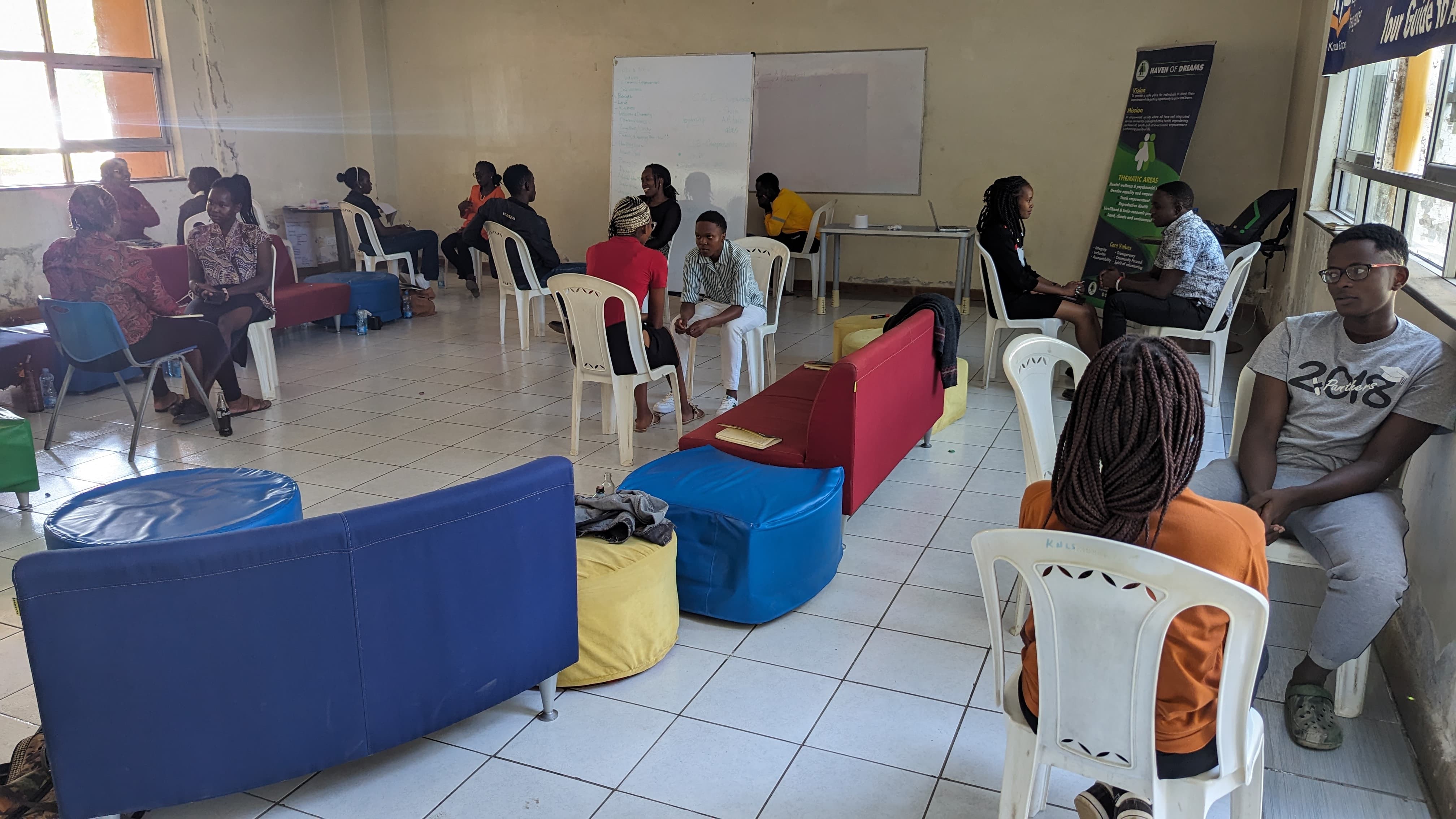World Health Organization
WHA78: Member States highlight the crucial role of the GCM/NCD in driving multisectoral and multistakeholder action on NCDs
Meaningful Engagement of People with Lived Experiences
27 May 2025
World Health Organization | 11 Dec 2024
Mental health conditions pose a major public health challenge in Kenya. One in four people seeking healthcare reportedly presents with mental disorders and psychosocial disabilities, including anxiety, depression and substance abuse. Young people in particular experience challenges in seeking and accessing mental health care due to limited available services, being unaware of mental health symptoms and available counselling, fearing high treatment costs, and experiencing stigma in their community.
In Nakuru county, a semi-urban area in the southwest of Kenya, there are virtually no youth-friendly mental health services ensuring discreet and confidential counselling. In fact, children and young people living with mental health conditions have no say in engaging in and co-designing effective healthcare, advocacy, and policy-making activities tackling the very mental health challenges affecting them.
The MAISHA project (Swahili for “life”) takes an innovative, three-pronged approach to improving youth-friendly mental health care and awareness in Nakuru. By training community health workers, engaging young people as lay counsellors in their communities, and leveraging new technologies to facilitate accessible and confidential counselling and referrals, Maisha proposes an integrated, participative and inclusive model of care with the potential to scale

Young people attend a community session on health knowledge management and comprehensive sexuality education organized by Haven of Dreams. Photo: Haven of Dreams.
Led by Haven of Dreams, a youth- and women-led community organization specializing in youth empowerment and adolescent mental health, the MAISHA team is planning to hold lay counsellor trainings for young people living with mental health conditions. Held in schools and social halls, these trainings will be led by psychologists and mental health professionals and cover the principles of a stepped-care approach, counselling techniques, and safe referral to regional facilities providing mental health care services. Exploring digital telepsychiatry services to make anonymous and personalized counselling services more accessible to young people, Maisha is looking to expand the projects reach and to effectively refer young people in need of specialised care to regional healthcare facilities.
In community centres and villages, the Maisha project is conceptualizing happy hour sessions, a format combining interactive discussions, learning games, storytelling and reflection sessions facilitating a culture of mental health learning and sharing and engaging young people and their peers. A series of advocacy and policy dialogues on the meaningful engagement of youth groups and young people identifying as lesbian, gay, bisexual, trans, intersex or queer will complement these community outreach activities.
MAISHA’s vision is to empower young people across Nakuru county through improved knowledge, skills, attitudes, and values to challenge stigma, take action to raise awareness, and provide lay counselling services for improved mental health care. As part of designing its community outreach and training program, the project already engaged 40 community champions and 15 Community Health Promoters working as primary health providers in Nakuru East. Together with partnering civil society organizations, Haven of Dreams is inputting into the county government planning and budgeting process and working to establish a mental health subprogram in the county budget for more investment in mental health services.
A radical shift in global public health is needed to avert millions of preventable and premature deaths from noncommunicable diseases (NCDs), including cancer, diabetes, cardiovascular disease, chronic respiratory disease, as well as mental health conditions. Primary health care (PHC) approaches present an important opportunity to transform and innovate how NCD and mental health services are delivered. For its 4th cycle, the NCD Lab – a WHO platform promoting promotes grassroots innovation for NCD prevention and control – called for innovative solutions that strengthen the delivery of NCD and mental health services using the PHC approach. From the more than 80 projects submitted, five promising innovations were selected to be included in the growing global portfolio of leading NCD innovations and receive tailored support to enhance impact and achieve scale.